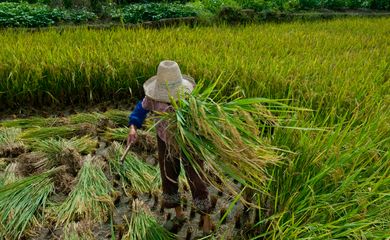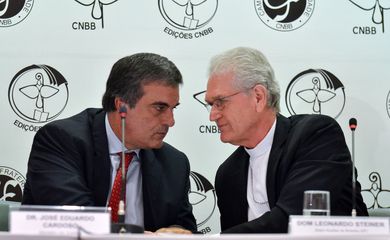Committee proposes stricter laws on human trafficking
Brazilian laws on trafficking in persons are being revised to conform to the standards of international laws on the issue, particularly the United Nations Convention against Transnational Organized Crime. A Congressional Committee of Investigation (CPI) on Trafficking in Persons has been set up to consider proposals and produced a final report.

“In our efforts on the CPI, we have often come across instances of international trafficking in persons which are not dealt with as crimes by Brazilian laws,” said the rapporteur, Deputy Flávia Morais. Brazil's current Penal Code covers trafficking in persons for sexual exploitation purposes only. “The new legislation would address several other ways it takes place,” she said.
The deputy supports amending the Penal Code to lengthen the penalties for the different forms of the felony. “Some provisions on human trafficking fall way short of those of the UN Convention against Transnational Organized Crime, a.k.a. the Palermo Convention,” she explained.
The next step is to set up a special deputies' commission to consider the proposed, more comprehensive categorization of trafficking in persons, and acknowledge other forms of it, like trafficking for organ removal, forced labor, and child custody.
The committee has suggested jail times between five and eight years for those found to carry, recruit, or harbor people for such purposes, and additional provisions to punish enticing as well. In the case of near-slave labor, jail times would be lengthened from two to four years minimum, still limited to eight years.
The CPI report went on to recommend revising the Statute of the Child and Adolescent and the Code of Civil Procedure to improve the definition of trafficking in persons. Amendments to the Adoptions Act were proposed so as to include provisions on international adoption. As per the recommendations, parent applications would only be accepted from nationals of signing countries of the Hague Convention on International Child Abduction. Additionally, the new drafting forbids natural persons from facilitating the adoption process.
The report further proposes that Brazilians aged between 16 and 18 be only allowed to work in another country with the permission of their parents or guardians and that of a judge. This should inhibit trafficking of young people who exit their countries expecting to work as fashion models or soccer players. Under the new rules, teenagers under 18 will only be allowed to work abroad under contracts by companies registered with the appropriate authorities.
The CPI will also recommend the creation of a Federal Police division to combat trafficking in persons, and dedicated police stations for victims of human trafficking in Brazil and abroad. Furthermore, it will require the National Council of Justice to probe into violations committed by judges engaged with intercountry adoptions.
Translated by Mayra Borges
Fonte: Committee proposes stricter laws on human trafficking




